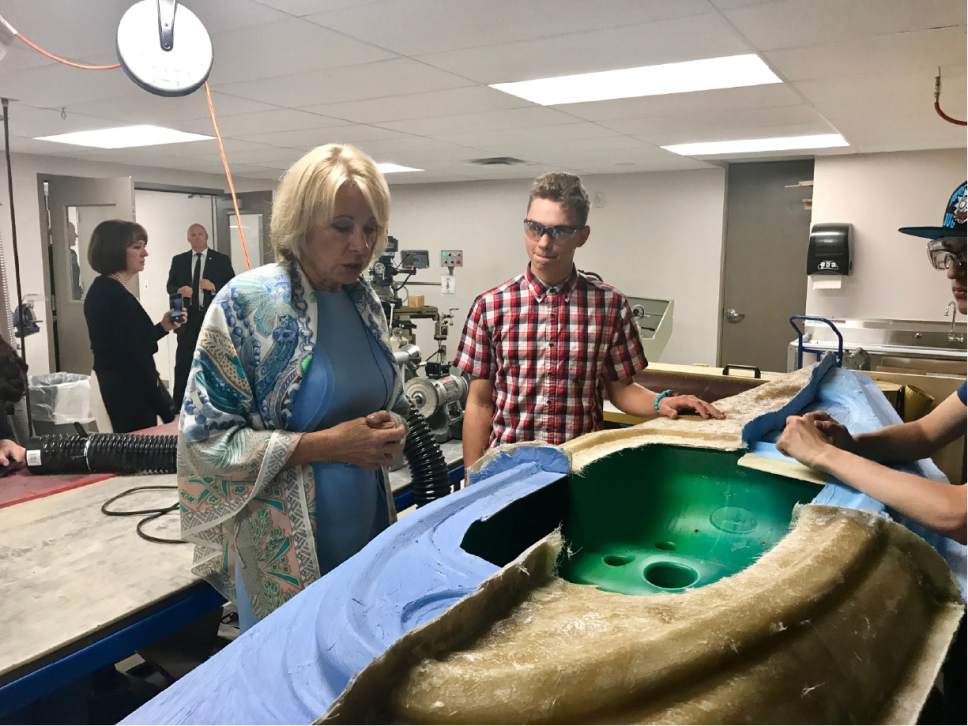This is an archived article that was published on sltrib.com in 2017, and information in the article may be outdated. It is provided only for personal research purposes and may not be reprinted.
Talk about refighting the last war.
Apparently, all it took for some folks to start thinking about dusting off the properly rejected idea of using vouchers to send taxpayer money to private schools in Utah was a brief visit from U.S. Education Secretary Betsy DeVos.
After the "school choice" champion touched base with folks at an education technology conference in Salt Lake City last week, the movers and shakers behind the 2007 effort to create a system of moving public money to private schools were reportedly moved to take up the battle again.
Please. No.
Been there. Done that.
Even though that voucher plan made it through the Utah Legislature, it was quickly challenged by a referendum petition drive, put on a statewide ballot and repealed by a resounding 62 percent of the vote.
For all their conservatism and independence, Utahns as a group like their public schools and aren't in favor of any plan that would drain away the already meager resources those schools have. They know that, no matter what school choice opportunities or gimmicks may be out there, the vast majority of students will always be in public schools, and those schools need all the support they can get.
Besides, Utah already has a healthy dose of school choice. Parents who go to the effort generally find it easy to enroll their children in public schools other than the ones they would be assigned to by default.
And the charter school movement is relatively robust in these parts, providing alternatives of focus and style for families who feel that traditional, sometimes overly large, public schools don't meet the needs of their children.
There are often questions about the quality and/or fiscal stability of some charters. But there are also oversight provisions that rightly come with the use of public money.
Finally, truly private schools in Utah are few and far between. That suggests that demand for such an alternative is, and always has been, small.
If Utah were to launch a voucher program that parents could use to pay all or part of the tuition to private schools — and if it turned out that there really was a large demand for such an opportunity — it would take some time for enough private schools to ramp up.
So it would be logical to worry if such schools were up to the task, if they were thrown together, whether in good faith or as a get-rich-quick scam, just to take advantage of a new cash flow opportunity.
Education in Utah already offers plenty of choice. The focus of public policy and public debate should be on strengthening public education, not undermining it.



